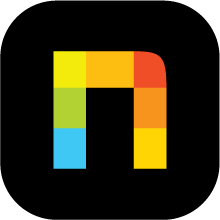Avatars, 3D models, and headsets—we all may have one soon. That’s at least according to the leaders at several top tech companies and their respective investments in extended reality (XR).
XR is an all-encompassing term for the virtual, augmented, and mixed reality tech growing in popularity and used in various fields and apps—from nursing students and architects to Google Maps and Pokémon Go.
And today’s tech leaders are sinking serious dollars into efforts to come out ahead in this developing field. For instance, Meta’s investing $36 billion into developing Reality Labs, the company’s home for its virtual reality and metaverse technology divisions. Apple’s even making a play with its new Vision Pro, a mixed-reality headset with a $3,499 price tag.
With a market size of over $30 billion—which insight from Deloitte says is poised to double over the next three years—tech companies that aren’t investing heavily in immersive technology teams are the exception, not the rule. Meta alone has dozens of extended reality-related jobs, and a significant number have starting salaries that exceed $100,000.
But obtaining the necessary skills to demand such a lucrative position can be tricky—especially with a lack of specialized degree programs. So if you’re keen on riding the rising extended reality tide, Fortune has curated a selection of degree and certificate programs that offer the tech training you need.
University of Oregon
- Program: Master’s in immersive media communication
- Length: 46 credit hours (1 year in quarter system)
- Course examples: Foundations in Immersive Media, User Experience and Design (UX), Experiential Marketing
Fall 2023 marks the launch of Oregon’s master’s program in immersive media communication.
Professor Donna Z. Davis, the program’s director and founder of the Oregon Reality Lab, says the new degree will help students navigate the intersection of new technologies and their use as communication tools. By graduation, students will understand audiences and have the skills to build experiences and content that drives continued interest.
“If you’re a communicator today, these are technologies that you need to understand, and if you don’t jump in, you will be left behind,” Davis tells Fortune. “So if you’re an early or mid-career communications professional, these are tools of our future.”
A senior researcher from Meta’s Reality Lab will teach an elective class to the program’s fall cohort of 12 students.
“I tell my students all the time, use this graduate program not to get your foot in the door, but to kick it down and run through,” Davis says.
Arizona State University
- Programs: Masters – Media arts & science (extended reality technology); Design (experience design); Futures and design; Narrative and emerging media
- Length: 30-36 credit hours (~2 years)
- Course examples: Movement and Computing, Digital Workflow in the Graphics Industry, Designing Extended-Reality Experiences, Worldbuilding and Imagination
At Arizona State University, student interest in XR is “ramping up,” according to Nicholas Pilarski, an associate professor of XR technology and spatial computing.
“Students are now understanding that this is the future that they want to live,” he says, noting that as companies open up to see the potential messaging and learning power from engagement with XR tech, so will the job market.
Students at ASU can focus on one of many areas within extended reality: technology, immersive experience designs, or ethical and societal implications. An additional program hosted in Los Angeles focuses on the intersection of narrative and XR.
Pilarski says people from various fields and backgrounds can—and will need to—learn from new XR technologies. With tech becoming more immersive, he adds that solving problems like climate change may become more feasible.
University of Michigan
- Program: Extended reality graduate certificate
- Length: 12 credit hours
- Course examples: Introduction to AR/VR Application Design, Developing AR/VR Experiences, AV/VR for Sustainability
The University of Michigan’s XR coursework teaches students how to transfer their existing tech skills to more futuristic technologies via designing, prototyping, and evaluating. That’s according to Professor Michael Nebeling, an associate professor at Michigan’s School of Information and College of Engineering.
Privacy, security, and accessibility are also significant factors to understand, he adds, especially as XR becomes more mainstream. In a few years, companies might expect individuals to know how to use immersive technology like they assume workers can use a computer or the internet today.
The University of Michigan certificate program is open to all graduate students who enroll in the necessary courses and complete a final project. The program will soon also offer a residency position where students can engage in XR project management work across the university.
Jeremy Nelson is the senior director of XR, media design, and production at the University of Michigan’s Center for Academic Innovation.
“If you’re a student, and you come to Michigan, you’re gonna have access to some of the most cutting-edge technology; you can help us shape the future. We’re gonna give you a real-world experience,” Nelson says—adding that this allows students of all backgrounds to have a wide range of opportunities to learn and grow.
Learn more: We’ve reviewed UX/UI bootcamps that can give you an edge on the design front.
Other interested students can gain specialization in extended reality through Nebeling’s online courses.
Looking to bust into the tech world but into an industry with more legs to stand on? These three cybersecurity certifications can help you land $150,000.








